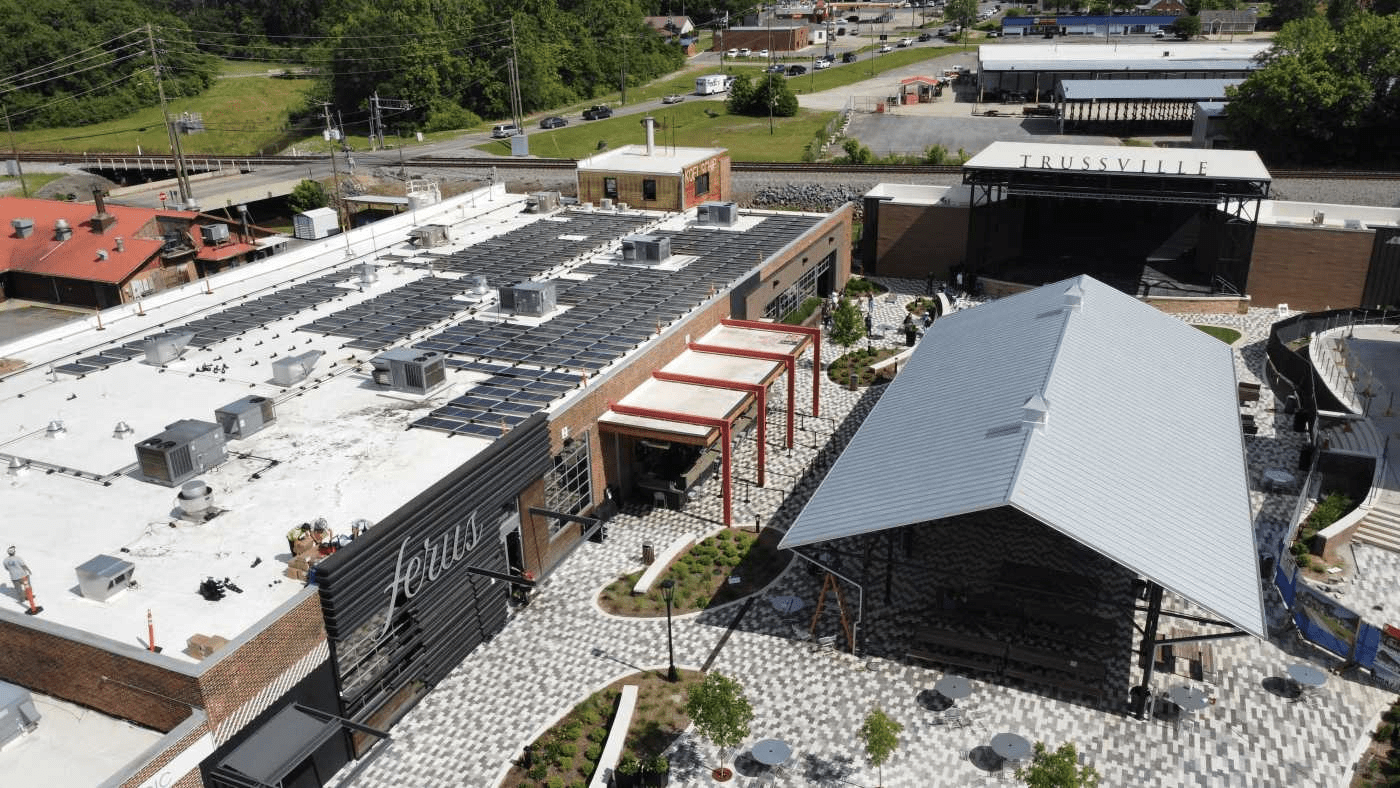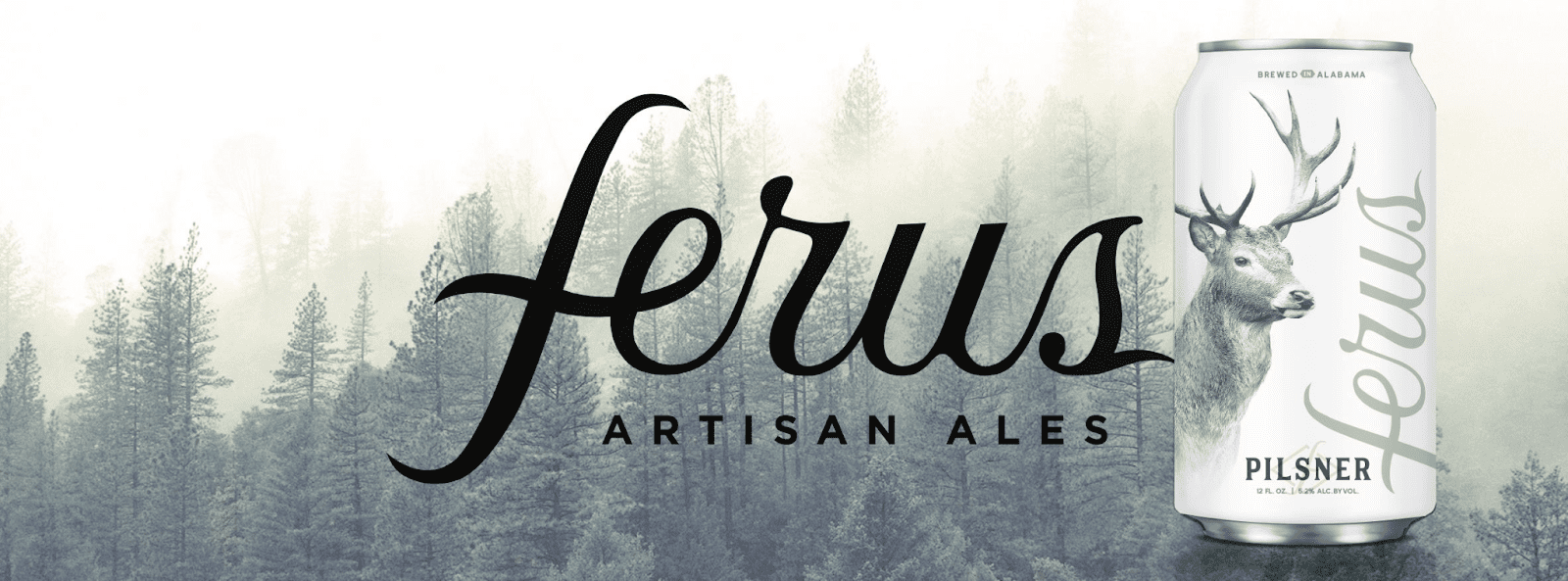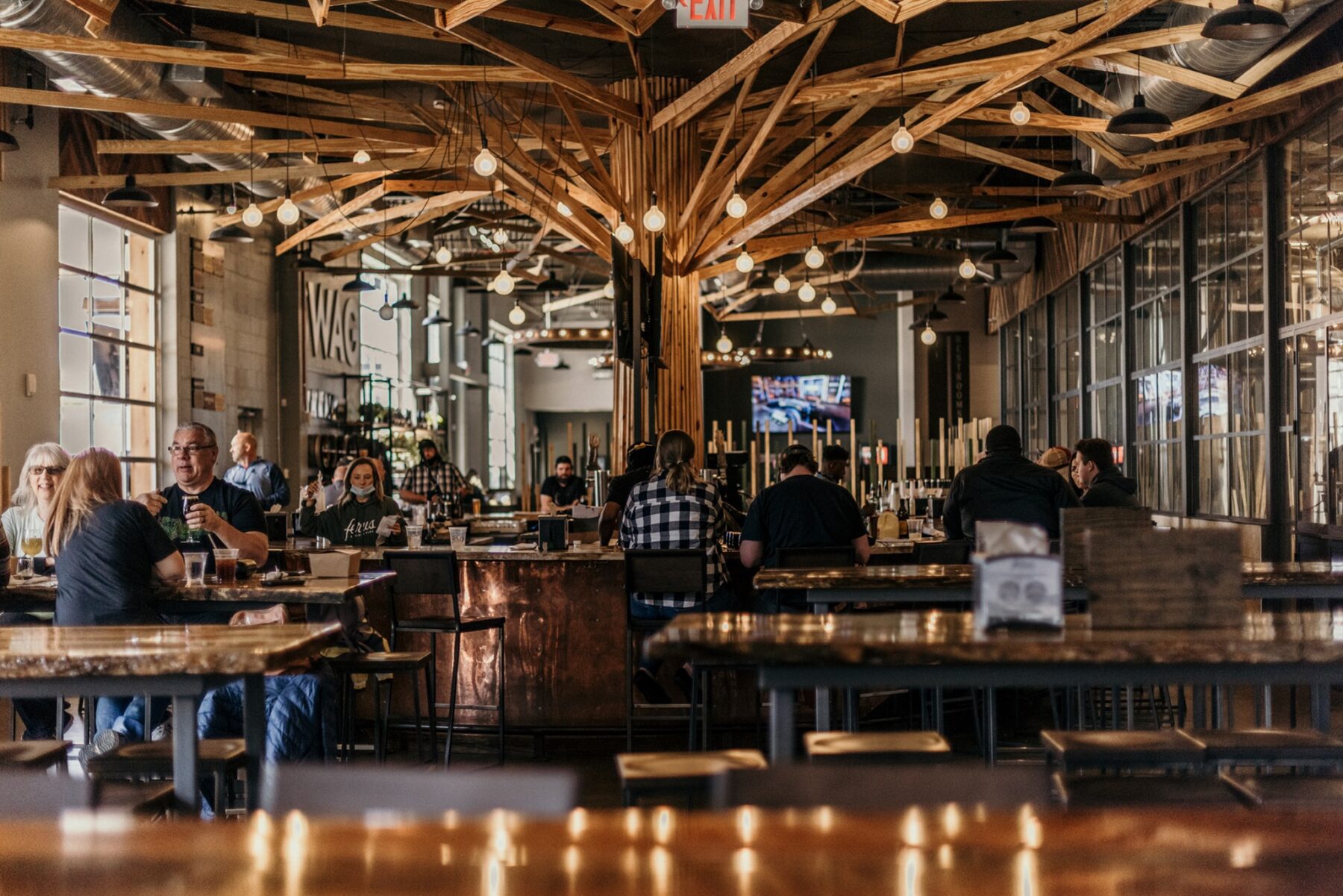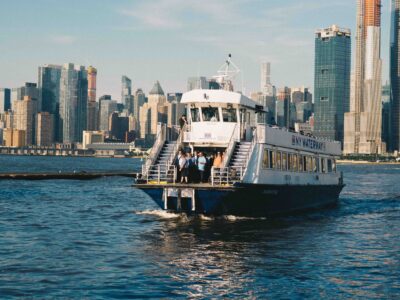Ferus Artisan Ales opened in October 2019 in Trussville, Alabama, and within 6 months, the team was navigating a newly opened business during a worldwide pandemic. However, they managed to pull through and continue to make exciting beer. As they continued to thrive, the brewery announced that they were partnering with Eagle Solar & Light, LLC to become the first solar-powered brewery in Alabama.
According to the Energy Usage, GHG Reduction, Efficiency, and Load Management Manual by the Brewer’s Association (BA), the reported the average relative energy use, specifically electrical usage (excluding thermal) was between 12 and 22 kilowatt-hours (kWh) to produce a single barrel of beer. The Manual explains “smaller breweries have higher kWh/BBL numbers because their smaller volumes do not offset the base energy required to brew a barrel of beer.”
Smaller Breweries or microbreweries, cannot produce more than 15,000 barrels per year according to BA-defined market segments. In order to produce 15,000 barrels, a microbrewery would use between 180,000 and 330,000 kWh annually.
Above and beyond the BA manual, New Belgium Brewing Company in Fort Collins, Colorado, released a toolkit that includes a step-by-step process for breweries to work toward net-zero carbon emissions. These efforts are positive for the environment as well as good business choices because consumer demand continues to grow for sustainably produced goods, including craft beer.
In fact, a study by the Economist Intelligence Unit commissioned by The World Wildlife Fund showed a 71% rise in searches for sustainable goods. A trend that didn’t falter during the pandemic. This research confirmed a trend that, once a niche market, sustainably produced goods are not only valued by consumers, but actively sought out.
Furthermore, a study by Purdue Agricultural Economics Report, published in October 2020 reported,
“There is considerable consumer demand for sustainable beer, as approximately 75% of beer consumers are willing to pay premiums for beer brewed using environmentally sustainable practices. These consumers are, on average, younger, higher-income beer buyers who enjoy trying new beers and are more likely to recycle.”

In response to the growing need for businesses to act more sustainably minded, Ferus Artisan Ales is partnering with Eagle Solar & Light, LLC to be the first solar-powered brewery in Alabama. The system will produce an estimated 168,000 kWh annually. According to the BA numbers stated above, this will certainly deplete carbon emissions by the brewery, as Ferus falls into the microbrewery category.
In a press release, it is stated that this project “is projected to save Ferus $20,000 in the first year alone. There will be increased savings as utility rates will continue to climb.” Again, not only is this endeavor good for the environment, but craft beer drinkers are seeking out sustainably produced goods, and this is financially beneficial to this small business. In the same press release, Coby Lake, Owner of Ferus Artisan Ales shares, “We’re excited to be the first brewery in Alabama to offer solar-powered craft beers. The cost savings coupled with the opportunity to do the right thing for the planet made this project a no-brainer.”

The word “ferus” means wild, untamed, and fierce. Using this word for the brewery name inspired the team’s “passion for adventure and all things wild and avant-garde”. It’s clear, they are living up to their moniker, embracing their new adventure, and pushing to thrive despite challenging times.





